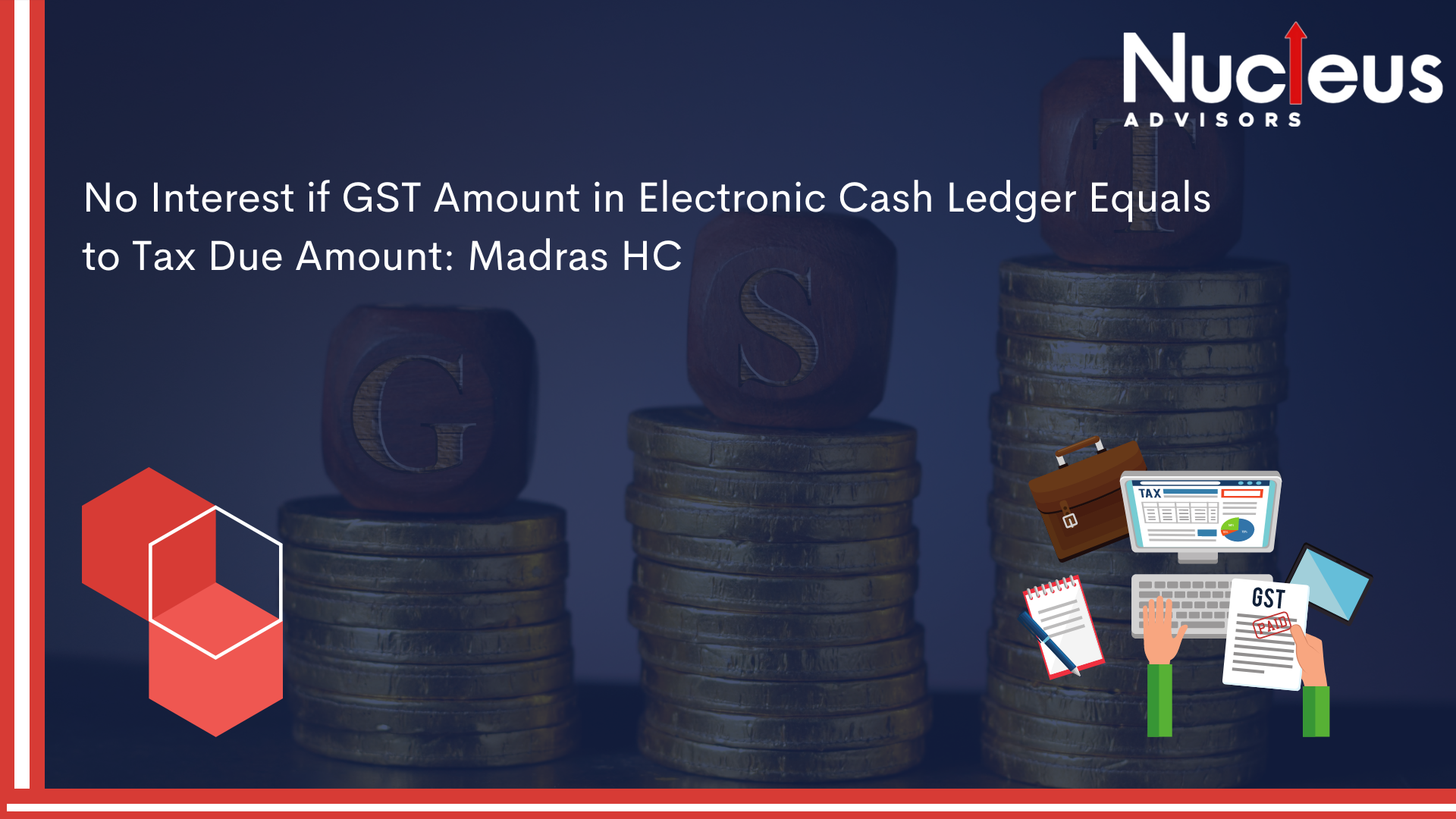


On the date of introduction of GST i.e., 01.07.2017 the petitioner had an accumulated balance of a sum of Rs.33,87,10,445/- as CENVAT credit and now it need to be transfer in GST by Form GST TRAN-1.
Due to some Technical glitches credit was not made available forthwith as Input Tax Credit (ITC) on furnishing of Form GST TRAN-1 and the petitioner could not file the monthly return in Form GSTR-3B for July 2017 within the due date i.e., 28.08.2023. Such non-filing of Form GSTR-3B for July 2017 had a domino effect and the petitioner was unable to file the GSTR-3B for subsequent months from August 2017 to December 2017.
Since the petitioner was disabled from filing the returns, the petitioner had ensured that the tax dues are fully paid within the due dates without any delay and accordingly, the petitioner had discharged GST liability for the period from July 2017 to December 2017 by depositing the tax amount in the Electronic Cash Ledger.
After a lapse of around 6 years, the petitioner was visited with a Recovery notice dated 16.05.2023, demanding the payment of interest of a sum of Rs. 23,76,26,657/- for alleged belated payment of GST from July 2017 to December 2017.
Further, Petitioner contend that any amount paid into Electronic Cash Ledger cannot be withdrawn by the taxpayer at their sweet will i.e., once the money is deposited into the account of Government maintained with RBI
Petitioner also submitted that in the 27th GST Council meeting dated 04.05.2018, the delay in filing the GSTR 3B by taxpayers due to technical glitches in the filing of Form TRAN 1 was recognized and as a result, the GST Implementation Committee had approved the waiver of Late Fee on such delayed filing.
Therefore, Petitioner submitted that there was no tax liability even as on the delayed date of filing of returns. Hence, the question of imposing of penalty, interest, etc., would not arise since the same has been waived by the GST Council even for the delayed filing of GSTR returns.
Respondent submitted that the non-availability of “Transitional input Tax Credit” has no bearing for filing the mandatory monthly returns in GSTR-3B on the 20th day of the succeeding month.
Further, Respondent contend that though the time for filing the TRAN-1 was extended by the Government from time to time, there was no extension to file the monthly returns in Form GSTR-3B.
Respondent also submit that there is no reason for the petitioner to retain the GST collected from their customers to the tune of Rs.527.54 Crores and detain the same in the Electronic Cash Ledger for non-availability of TRAN-1 credit of Rs. 33,87,10,445/-. Since the petitioner is only an “authorized agent” to collect the GST on behalf of the Government, they should be responsible to remit the same on or before the 20th of succeeding month, failing which will attract the “compensatory interest” under Section 50 of the GST Act.
Further, Respondent submit that the “cash”, which is “deposit” in the petitioner's own Electronic Cash Ledger is not the tax paid to the Government, unless the said amount is debited while filing the monthly GSTR-3B returns.
The credit to the account of Government would always occur not later than the last date for filing the monthly returns in terms of the provisions of Section39(7) of the Act.
Once the amount is paid by generating GST PMT-06, the said amount will be initially credited to the account of the Government immediately upon deposit, at which point, the tax liability of a registered person will be discharged to the extent of the deposit made to the Government.
As long as the GST, which was collected by a registered person, is credited to the account of the Government not later than the last date for filing the monthly returns, to that extent, the tax liability of such registered person will be discharged from the date when the amount was credited to the account of the Government.
The hon'ble Mr. Justice Krishnan Ramasamy in High Court has rendered a favorable decision in favor of Eicher Motors (W.P.Nos. 16866 & 22013 of 2023).
That all charge made by respondent (Department) are liable to be quashed. Accordingly, quashed.
In the result, these writ petitions are allowed.
Consequently, the connected miscellaneous petitions are also closed and Eicher Limited is not liable to pay the penalty.
Hey, it's Deepak Mittal, a CA Finalist, Working as an Associate II at Nucleus Advisors, I am passionate about indirect taxation and have experience in it. You can reach me at deepak.mittal@nucleusadvisors.in or Connect on LinkedIn